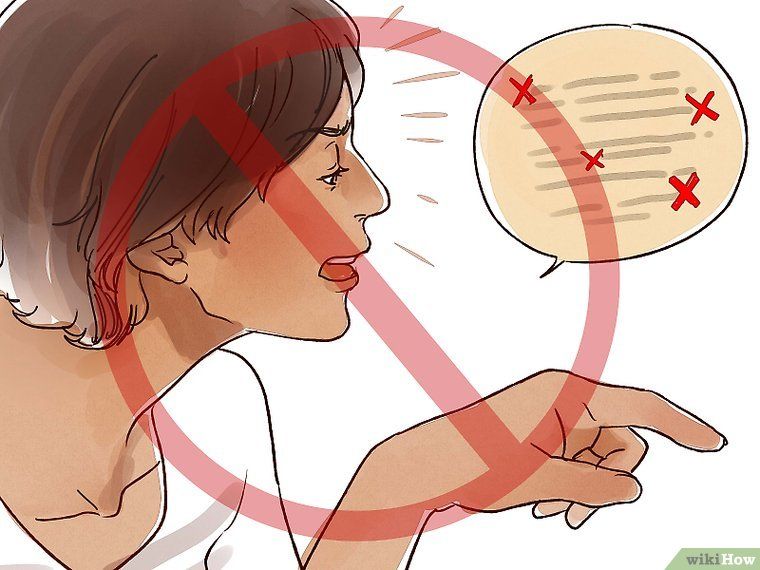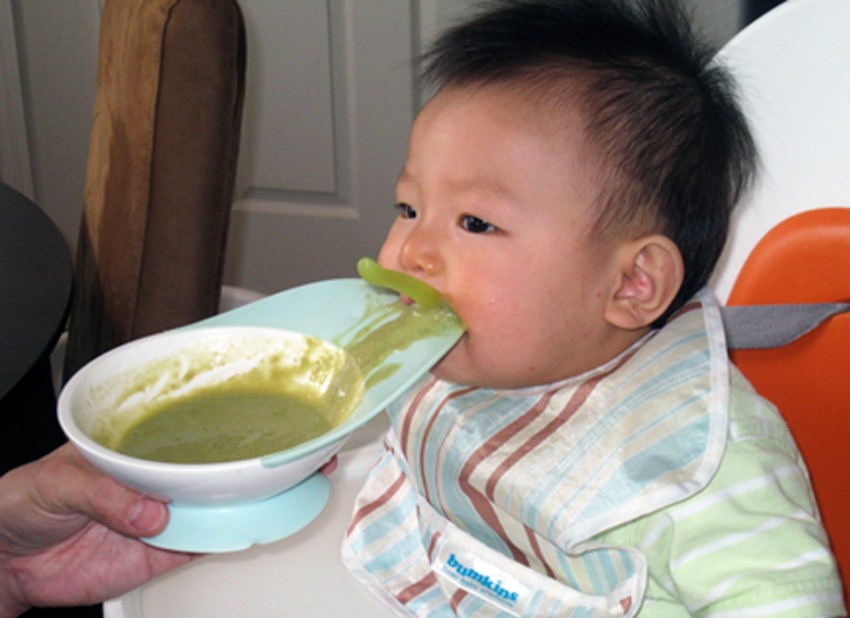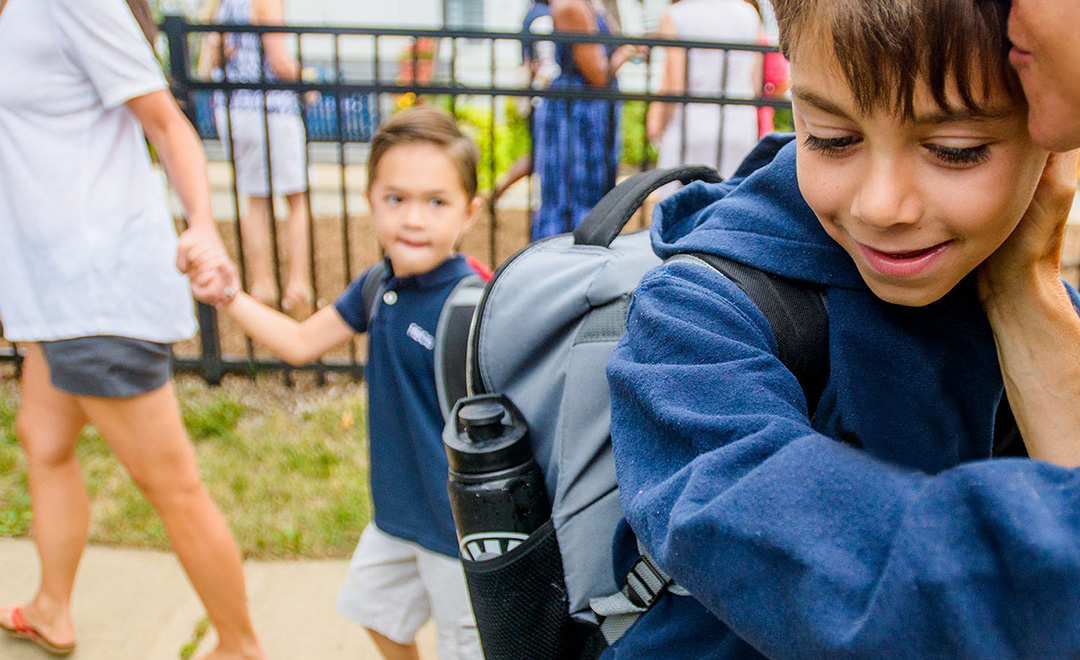How to discipline difficult child
How to discipline your child the smart and healthy way
There comes a time when every parent struggles with how best to discipline their child. Whether dealing with a screaming toddler or an angry teen, it can be hard to control your temper. No parent wants to find themselves in such a situation and the bottom line is that shouting and physical violence never help.
Thankfully, there are other, more effective ways and one of them is positive discipline. We consulted Lucie Cluver, Oxford University professor of Child and Family Social Work and mother of two young boys, to explore how the approach can help parents build positive relationships with their children and teach skills like responsibility, cooperation and self-discipline.
There are no bad children, only bad behaviour.
Why positive discipline?
“Parents don't want to shout or hit their kids. We do it because we're stressed and don't see another way,” says Professor Cluver.
The evidence is clear: shouting and hitting simply do not work and can do more harm than good in the long run. Repeated shouting and hitting can even adversely impact a child’s entire life. The continued “toxic stress” it creates can lead to a host of negative outcomes like higher chances of school dropout, depression, drug use, suicide and heart disease.
“It’s like saying: here's this medicine, it's not going to help you and it's going to make you sick,” says Professor Cluver. “When we know something doesn't work, that's a pretty good reason to look for a different approach.”
Rather than punishment and what not to do, the positive discipline approach puts an emphasis on developing a healthy relationship with your child and setting expectations around behaviour. The good news for every parent is it works and here’s how you can start putting it into practice:
1. Plan 1-on-1 time
One-on-one time is important for building any good relationship and even more so with your children. “It can be 20 minutes a day. Or even 5 minutes. You can combine it with something like washing dishes together while you sing a song or chatting while you're hanging out the washing,” says Professor Cluver. “What's really important is that you focus on your child. So, you turn your TV off, you turn your phone off, you get to their level and it's you and them.”
“It can be 20 minutes a day. Or even 5 minutes. You can combine it with something like washing dishes together while you sing a song or chatting while you're hanging out the washing,” says Professor Cluver. “What's really important is that you focus on your child. So, you turn your TV off, you turn your phone off, you get to their level and it's you and them.”
2. Praise the positives
As parents we often focus on our children’s bad behaviour and call it out. Children may read this as a way to get your attention, perpetuating poor conduct rather than putting a stop to it.
Children thrive on praise. It makes them feel loved and special. “Watch out for when they're doing something good and praise them, even if that thing is just playing for five minutes with their sibling,” recommends Professor Cluver. “This can encourage good behaviour and reduce the need for discipline.”
3. Set clear expectations
“Telling your child exactly what you want them to do is much more effective than telling them what not to do,” says Professor Cluver. “When you ask a child to not make a mess, or to be good, they don't necessarily understand what they're required to do.” Clear instructions like “Please pick up all of your toys and put them in the box” set a clear expectation and increase the likelihood that they'll do what you’re asking.
“When you ask a child to not make a mess, or to be good, they don't necessarily understand what they're required to do.” Clear instructions like “Please pick up all of your toys and put them in the box” set a clear expectation and increase the likelihood that they'll do what you’re asking.
“But it's important to set realistic expectations. Asking them to stay quiet for a whole day may not be as manageable as asking for 10 minutes of quiet time while you have a phone call,” says Professor Cluver. “You know what your child is capable of. But if you ask for the impossible, they are going to fail.”
4. Distract creatively
When your child is being difficult, distracting them with a more positive activity can be a useful strategy says Professor Cluver. “When you distract them towards something else – by changing the topic, introducing a game, leading them into another room, or going for a walk, you can successfully divert their energy towards positive behaviour.”
Timing is also crucial. Distraction is also about spotting when things are about to go wrong and taking action. Being mindful of when your child is starting to become fidgety, irritable or annoyed, or when two siblings are eyeing the same toy, can help diffuse a potential situation before it becomes one.
Distraction is also about spotting when things are about to go wrong and taking action. Being mindful of when your child is starting to become fidgety, irritable or annoyed, or when two siblings are eyeing the same toy, can help diffuse a potential situation before it becomes one.
5. Use calm consequences
Part of growing up is learning that if you do something, something can happen as a result. Defining this for your child is a simple process that encourages better behaviour while teaching them about responsibility.
Give your child a chance to do the right thing by explaining the consequences of their bad behaviour. As an example, if you want your child to stop scribbling on the walls, you can tell them to stop or else you will end their play time. This provides them with a warning and an opportunity to change their behaviour.
If they don’t stop, follow through with the consequences calmly and without showing anger, “and give yourself credit for that – it’s not easy!” adds Professor Cluver.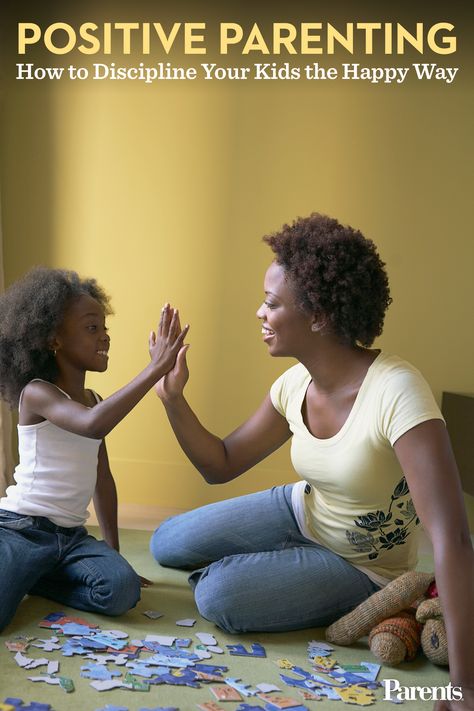
If they do stop, give them lots of praise for it, recommends Professor Cluver. “What you are doing is creating a positive feedback loop for your child. Calm consequences have been shown to be effective for kids to learn about what happens when they behave badly.”
Being consistent is a key factor in positive parenting, which is why following through with the consequences is important. And so is making them realistic. “You can take a teenager's phone away for an hour but taking it away for a week might be difficult to follow through on.”
Engaging with younger children
One-on-one time can be fun – and it’s completely free! “You can copy their expressions, bang spoons against pots, or sing together,” adds Professor Cluver. “There’s amazing research showing that playing with your children boosts their brain development.”
Engaging with older children
Like younger children, teenagers seek praise and want to be thought of as good. One-on-one time is still important to them. “They love it if you dance around the room with them or engage in a conversation about their favourite singer,” says Professor Cluver. “They may not always show it, but they do. And, it's an effective way of building a relationship on their terms.”
“They love it if you dance around the room with them or engage in a conversation about their favourite singer,” says Professor Cluver. “They may not always show it, but they do. And, it's an effective way of building a relationship on their terms.”
While setting expectations, “ask them to help make some of the rules,” suggests Professor Cluver. “Sit them down and try to agree on the household dos and don'ts. They can also help decide what the consequences for unacceptable behaviour will be. Being involved in the process helps them know that you understand they're becoming their own independent beings.”
Advice for parents during the COVID-19 pandemic
The pandemic has brought about sudden and drastic changes in the lives of families with parents directly in the middle of it. Here are some tips that can help parents get through these and any other stressful times:
1. Pause
We all know the stress when we feel our child is being difficult. At moments like these, being present and stepping back is a simple and useful tactic. Hit the “pause button”, as Professor Cluver calls it. “Take five deep breaths, slowly and carefully and you'll notice you are able to respond in a calmer, more considered way. Parents across the world say that just taking that pause is enormously helpful.”
Hit the “pause button”, as Professor Cluver calls it. “Take five deep breaths, slowly and carefully and you'll notice you are able to respond in a calmer, more considered way. Parents across the world say that just taking that pause is enormously helpful.”
2. Step back
Parents often forget to care for themselves, says Professor Cluver. “Take some time for yourself, such as when the kids are asleep, to do something that makes you feel happy and calm. It's really hard to do all the things right as a parent, when you haven't given yourself a break.”
3. Praise yourself
It’s easy to forget the astonishing job you do as a parent every day and you should give yourself the credit, advises Professor Cluver. “Each day, maybe while brushing your teeth, take a moment to ask: ‘What was one thing I did really well with my kids today?’ And, just know that you did something great.”
“We might be in and out of isolation, but you are absolutely not alone,” she says. “Millions of parents across the world are all trying and we're all failing sometimes. And then we're trying again. We’ll survive this together.”
“Millions of parents across the world are all trying and we're all failing sometimes. And then we're trying again. We’ll survive this together.”
> Explore more COVID-19 parenting tips
Did you find this content useful?
What’s the Best Way to Discipline My Child?
Log in | Register
Family Life
Family Life
Listen
Español
Text Size
As a parent, one of your jobs to teach your child to behave. It's a job that takes time and patience. But, it helps to learn the effective and healthy discipline strategies.
Here are some tips from the American Academy of Pediatrics (AAP) on the best ways to help your child learn acceptable behavior as they grow.
10 healthy discipline strategies that work
The AAP recommends positive discipline strategies that effectively teach children to manage their behavior and keep them from harm while promoting healthy development. These include:
Show and tell. Teach children right from wrong with calm words and actions. Model behaviors you would like to see in your children.
Set limits. Have clear and consistent rules your children can follow. Be sure to explain these rules in age-appropriate terms they can understand.
Give consequences. Calmly and firmly explain the consequences if they don't behave. For example, tell her that if she does not pick up her toys, you will put them away for the rest of the day. Be prepared to follow through right away. Don't give in by giving them back after a few minutes. But remember, never take away something your child truly needs, such as a meal.

Hear them out. Listening is important. Let your child finish the story before helping solve the problem. Watch for times when misbehavior has a pattern, like if your child is feeling jealous. Talk with your child about this rather than just giving consequences.
Give them your attention. The most powerful tool for effective discipline is attention—to reinforce good behaviors and discourage others. Remember, all children want their parent's attention.
Catch them being good. Children need to know when they do something bad--and when they do something good. Notice good behavior and point it out, praising success and good tries. Be specific (for example, "Wow, you did a good job putting that toy away!").
Know when not to respond. As long as your child isn't doing something dangerous and gets plenty of attention for good behavior, ignoring bad behavior can be an effective way of stopping it.
 Ignoring bad behavior can also teach children natural consequences of their actions. For example, if your child keeps dropping her cookies on purpose, she will soon have no more cookies left to eat. If she throws and breaks her toy, she will not be able to play with it. It will not be long before she learns not to drop her cookies and to play carefully with her toys.
Ignoring bad behavior can also teach children natural consequences of their actions. For example, if your child keeps dropping her cookies on purpose, she will soon have no more cookies left to eat. If she throws and breaks her toy, she will not be able to play with it. It will not be long before she learns not to drop her cookies and to play carefully with her toys. Be prepared for trouble. Plan ahead for situations when your child might have trouble behaving. Prepare them for upcoming activities and how you want them to behave.
Redirect bad behavior. Sometimes children misbehave because they are bored or don't know any better. Find something else for your child to do.
Call a time-out. A time-out can be especially useful when a specific rule is broken. This discipline tool works best by warning children they will get a time out if they don't stop, reminding them what they did wrong in as few words―and with as little emotion―as possible, and removing them from the situation for a pre-set length of time (1 minute per year of age is a good rule of thumb).
 With children who are at least 3 years old, you can try letting their children lead their own time-out instead of setting a timer. You can just say,
"Go to time out and come back when you feel ready and in control." This strategy, which can help the child learn and practice self-management skills, also works well for older children and teens.
With children who are at least 3 years old, you can try letting their children lead their own time-out instead of setting a timer. You can just say,
"Go to time out and come back when you feel ready and in control." This strategy, which can help the child learn and practice self-management skills, also works well for older children and teens.
Spanking and harsh words are harmful and don't work. Here's why:
The AAP policy statement, "Effective Discipline to Raise Healthy Children," highlights why it's important to focus on teaching good behavior rather than punishing bad behavior. Research shows that spanking, slapping and other forms of physical punishment don't work well to correct a child's behavior. The same holds true for yelling at or shaming a child. Beyond being ineffective, harsh physical and verbal punishments can also damage a child's long-term physical and mental health.
- Spanking's unhealthy cycle.
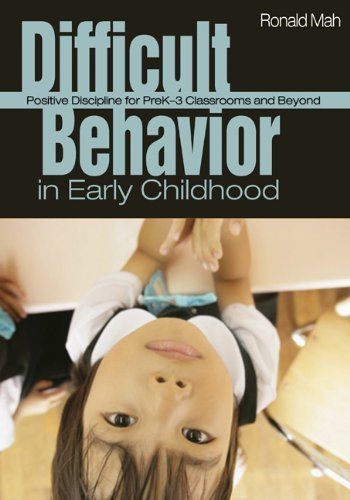 The AAP advises that parents and caregivers should not spank or hit children. Instead of teaching responsibility and self-control, spanking often increases aggression and anger in children. A
study of children born in 20 large U.S. cities found that families who used physical punishment got caught in a negative cycle: the more children were spanked, the more they later misbehaved, which prompted more spankings in response. Spanking's effects may also be felt beyond the parent-child relationship. Because it teaches that causing someone pain is OK if you're frustrated—even with those you love. Children who are spanked may be more likely to hit others when they don't get what they want.
The AAP advises that parents and caregivers should not spank or hit children. Instead of teaching responsibility and self-control, spanking often increases aggression and anger in children. A
study of children born in 20 large U.S. cities found that families who used physical punishment got caught in a negative cycle: the more children were spanked, the more they later misbehaved, which prompted more spankings in response. Spanking's effects may also be felt beyond the parent-child relationship. Because it teaches that causing someone pain is OK if you're frustrated—even with those you love. Children who are spanked may be more likely to hit others when they don't get what they want. - Lasting marks. Physical punishment increases the risk of injury, especially in children under 18 months of age, and may leave other measurable marks on the brain and body. Children who are spanked show higher levels of hormones tied to
toxic stress. Physical punishment may also affect brain development.
 One study found that young adults who were spanked repeatedly had less gray matter, the part of the brain involved with self-control, and performed lower on IQ tests as young adults than the control group.
One study found that young adults who were spanked repeatedly had less gray matter, the part of the brain involved with self-control, and performed lower on IQ tests as young adults than the control group. - Verbal abuse: How words hurt. Yelling at children and using words to cause emotional pain or shame also has been found to be ineffective and harmful. Harsh verbal discipline, even by parents who are otherwise warm and loving, can lead to more misbehavior and mental health problems in children.
Research shows that harsh verbal discipline, which becomes more common as children get older, may lead to more behavior problems and symptoms of depression in teens.
Learn from mistakes—including your own
Remember that, as a parent, you can give yourself a time out if you feel out of control. Just make sure your child is in a safe place, and then give yourself a few minutes to take a few deep breaths, relax or call a friend. When you are feeling better, go back to your child, hug each other, and start over.
If you do not handle a situation well the first time, try not to worry about it. Think about what you could have done differently and try to do it the next time. If you feel you have made a real mistake in the heat of the moment, wait to cool down, apologize to your child, and explain how you will handle the situation in the future. Be sure to keep your promise. This gives your child a good model of how to recover from mistakes.
Healthy & effective discipline tips by age/stage
Infants |
|
|---|---|
Toddlers |
|
Preschool Age |
|
Gradeschool-Age Children |
|
Adolescents & Teens |
|
More information
- 15 Tips to Survive the Terrible 3's
- How to Shape and Manage Your Young Child's Behavior
- Disciplining Older Children
- How to Give a Time-Out
- Effective Discipline to Raise Healthy Children (AAP Policy Statement)
- Last Updated
- 11/5/2018
- Source
- American Academy of Pediatrics (Copyright © 2018)
The information contained on this Web site should not be used as a substitute for the medical care and advice of your pediatrician. There may be variations in treatment that your pediatrician may recommend based on individual facts and circumstances.
There may be variations in treatment that your pediatrician may recommend based on individual facts and circumstances.
Page not found - GBOU secondary school No. 2 im. Hero of the Soviet Union G.N. Guryanov Railway Art. Shentala
Search using the form below or view recent entries.
Find:
Visually impaired version
Find:
School Forum
To come inUsername:
Password:
Remember me
Message. Feedback platform
Independent assessment of the quality of implementation conditions by an educational organization: https://bus.gov.ru/
Link: Instructions on the placement of reviews by citizens based on the results of familiarization with the information provided on the website bus.gov.ru
- #Healthy News (52)
- Distance learning (18)
- Road safety (49)
- Information (31)
- LDP "Herringbone" (71)
- News (995)
- schedule (3)
- Growth point (37)
- Expert Council (1)
Children's Helpline
Children's helpline 8-800-2000-122
was created to provide psychological assistance to children,
teenagers and their parents in difficult life situations.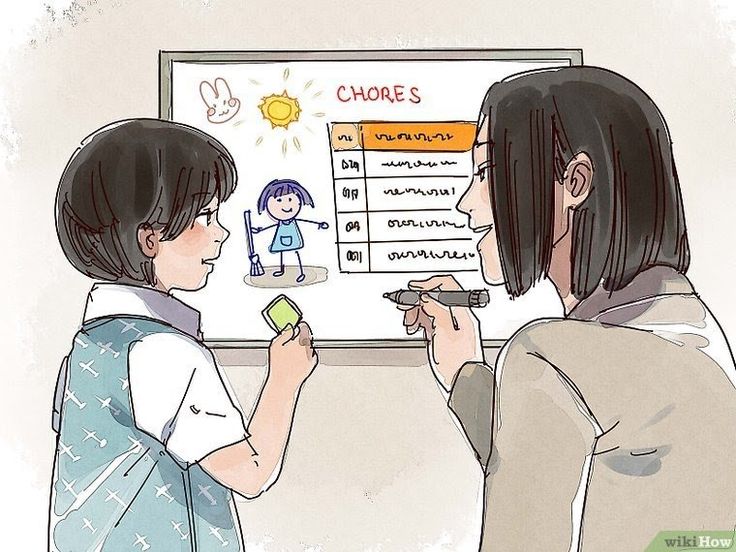
Website https://telefon-doveria.ru/ 9 is also available0069
Hotline
Hotline
- of the Northern Department of the Ministry of Education and Science of the Samara Region on the issue of suppressing illegal collection of funds from parents studying in educational institutions 8 (84655) 2-11-05; 8 (84655) 2-25-06 ;
8(84655)2-19-51
Monday - Thursday from 8.00 am. to 17.00
Friday from 8.00 to 17.00 until 16.00
Lunch break from 13.00 until 13.48 h - MINISTRY OF EDUCATION AND SCIENCE OF THE SAMARA REGION "Hot line" for combating corruption, including illegal collection of funds. http://educat.samregion.ru
443099, Samara, st. Alexei Tolstoy, 38/16.
E-mail address for citizens' appeals: [email protected].
Specialist for working with citizens' appeals: 333-50-01. - Phones of control and supervisory authorities for combating corruption, including illegal collection of funds: Ministry of Internal Affairs of Russia "Shentalinsky" 8 (846) 522-16-44
- Prosecutor's Office of the Shentalinsky District 8(846)522-24-17 Prosecutor's Office of the Samara Region "How to deal with extortion in schools"
- The work of the "hot line" on the organization of training for people who were forced to leave the territory of Ukraine: phone-8-84652-2-17-45 Working hours: 8.
 00-16.00 Responsible Arinina Natalia Nikolaevna
00-16.00 Responsible Arinina Natalia Nikolaevna
Show all organizations and phone numbers
Governor's Project
The “Together” module allows you to conduct surveys of citizens on socially significant topics, post news information messages, and carry out targeted settings for sending notifications to citizens about ongoing events, polls and placed news information messages, depending on the place of residence of a citizen.
Northern Department of the Ministry of Education and Science of the Samara Region
Get WorldSkills Training for Professional Longevity
View all
Russian Ministry of Education
Iconic One Theme | Powered by Wordpress
10 rules of discipline for a child
Discipline - the rules of behavior of the individual, corresponding to the norms accepted in society or the requirements of the rules of the order.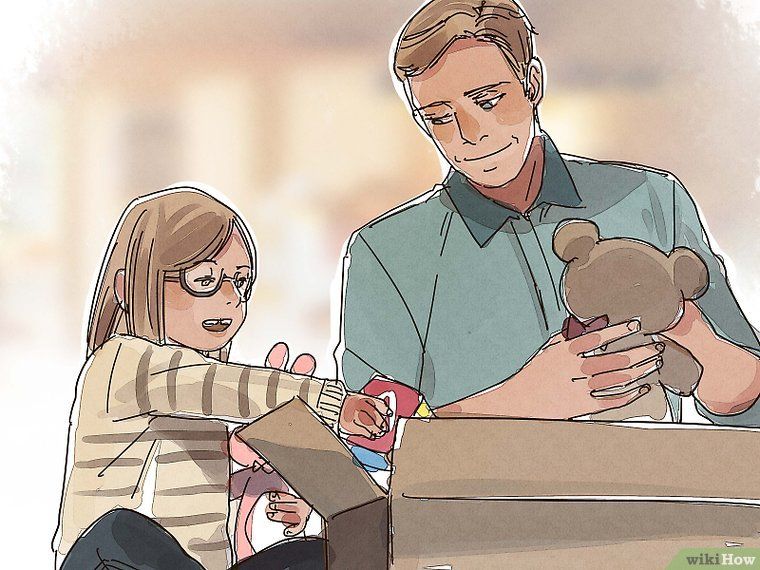 It is impossible to make a child disciplined in one day, but by consistently instilling important rules of behavior in him, you can achieve excellent results. So, we read about the ten golden rules of discipline for a child.
It is impossible to make a child disciplined in one day, but by consistently instilling important rules of behavior in him, you can achieve excellent results. So, we read about the ten golden rules of discipline for a child.
Contents
For many of us, the word discipline evokes unpleasant associations from childhood associated with strict rules of behavior, pressure, punishment for disobedience (for example, when at a children's camp we did not want to line up in pairs, and at school we did not want to walk in a school uniform).
We all want to raise our children as open and liberated as possible, but practice shows that excessive freedom of action can negatively affect a child's behavior. And vice versa: a well-built system of rules of conduct makes a child's life more organized, comfortable and understandable.
Evgeny Tarasov psychologist, Moscow:
Many modern mothers and fathers want to raise their children as "free" and self-confident as possible.
And they often naively believe that babies will become like that if they grow up in a space without rules. Meanwhile, permissiveness does not at all guarantee the upbringing of a strong personality from a child. Rather, on the contrary. If everything was allowed to a child up to a certain age, he will assume that this will continue in the future. But reality will still make its own adjustments. This can happen at a party, where he will be reprimanded for ugly behavior, or in kindergarten. Of course, parents can up to a certain point protect the heir from the harsh reality (choose a private kindergarten, enroll in home schooling at school), but anyway, sooner or later, he will face it. And it will be difficult for him to come to terms with her.
When to start teaching discipline
Psychologists and educators agree on this: as early as possible. Remember when the famous Soviet teacher Makarenko was asked when to start raising a child, if at the moment he is 6 months old? He replied that it was necessary to start 6 months ago. Approximately the same with discipline, the sooner you start to instill (of course, not hard, but gently, but persistently), the better for the child.
Approximately the same with discipline, the sooner you start to instill (of course, not hard, but gently, but persistently), the better for the child.
Of course, to teach discipline to a small child is not an easy task, to put it mildly. Especially when it is already difficult for parents, due to the busyness and dynamism of their lifestyle, when it is far from always possible to adhere to the rules of discipline themselves. But, believe me, without discipline it is much more difficult. Letting everything take its course, you run the risk of turning your family's life into complete chaos, filling it with endless stress and worries. Even elementary everyday situations (shopping, walking, queues, visiting government institutions, etc.) can turn into a real hell if the child does not have a clear understanding of how to behave in a particular situation.
Of course, the rules should not be too rigid, dictatorial. They should be conveyed in such a way that the child understands that they are needed for his own good.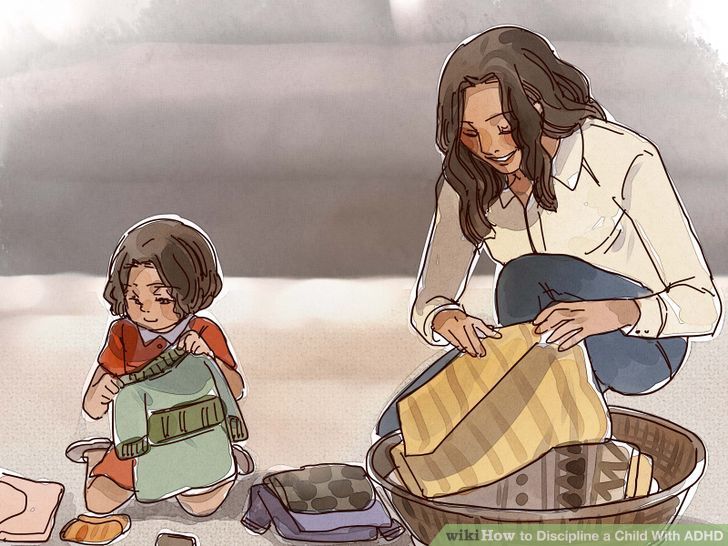 And, of course, sometimes there can be exceptions to them.
And, of course, sometimes there can be exceptions to them.
Psychologist's advice:
Signs of indiscipline are similar to "protest" behavior. It can be caused by conflict relations in the family or in the children's team. And they can also be the result of a child's hyperactivity or, conversely, a consequence of his intellectual and "motor" passivity. And therefore it is desirable to understand the reasons for the indiscipline of the baby - this will help to quickly begin his upbringing in the right direction.
Instilling Discipline in Your Child: Valuable Advice
Here are 10 tried-and-tested parenting tips on how to make your child more disciplined:
- Try to define for yourself exactly what rules of behavior you want to instill in your child. Maybe it's primarily the rules of behavior at the table or strict adherence to the daily routine. Think back to your childhood years and the methods of upbringing that your parents applied to you.
 Take note of what feels right to you.
Take note of what feels right to you. - Always confirm any rules and norms instilled in a child by your own example. If you yourself are not disciplined, how can you demand discipline from a child? For example, prepare to leave for work in advance so that there is no crazy morning fuss looking for a wallet or a pass.
- Never pressure or bully a child. This can lead to exactly the opposite result (for example, the child you are trying to teach early reading, in response to your pressure, may refuse to pick up a book at all). Try to be gentle but firm in a friendly, explanatory tone. As they say, water wears away a stone.
- Be consistent and go to your goal until the end . You yourself must adhere to the rules of conduct established in your family. For example, it is not customary for you to watch TV while eating. And the kid insists: they say, without the cartoon I will not eat a fish cake. Well, say don't eat, but know that there won't be any more food before dinner.
 However, the “TV rule” should also apply to adults. That is, dad doesn’t watch football either, and mom doesn’t watch a TV series for food.
However, the “TV rule” should also apply to adults. That is, dad doesn’t watch football either, and mom doesn’t watch a TV series for food. - The more rituals in your family, the more the parents themselves are subject to the routine, the easier it is for the child to do what is asked of him. Show by your own example that the rules, family rituals and traditions are great, they bring the family together (for example, the rule to have dinner together at the table, share impressions and news about the past day).
- Clearly define the boundaries of what is permitted and what is not permitted . Illustrate your arguments with illustrative examples (you can only cross the road through a pedestrian crossing so as not to get hit by a car, you can’t talk to strangers, because you can get into trouble). And from early childhood, begin to invest in the child the concept that his freedom ends where the freedom of another person begins (it is impossible to take someone else's, and even more so to beat another).
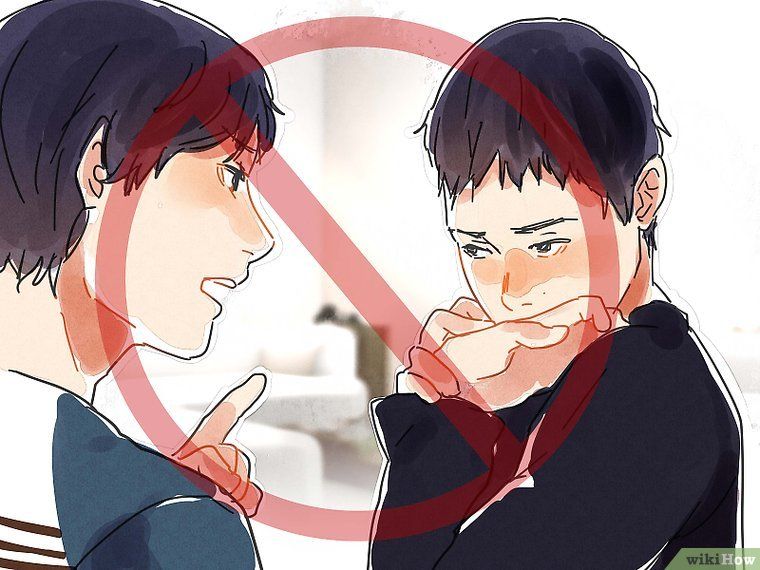
- Agree on the behavior you want to instill in your child with your spouse (and other family members) so that you become a united front . Situations are unacceptable when one of the parents forbids something, and the other allows. For example, mom asks to wash her plate, and dad, wanting to please the child, allows her not to wash it. So the child learns to adapt and manipulate others. “Oh, mom didn’t let me? I'm going to my dad."
- Watch your tone. The tone of the parental request should be friendly rather than imperative. Any prohibition is difficult for a child, and if it is pronounced angrily, it becomes doubly difficult.
- Try to build a trusting relationship with your child . Learn not only to listen to him, but also to hear, listen to his opinion, show that it is also very important for you. Let your baby also offer a way out of the conflict situation. After such a "heart-to-heart talk", spend at least some time with him, read to him, play some game with him.

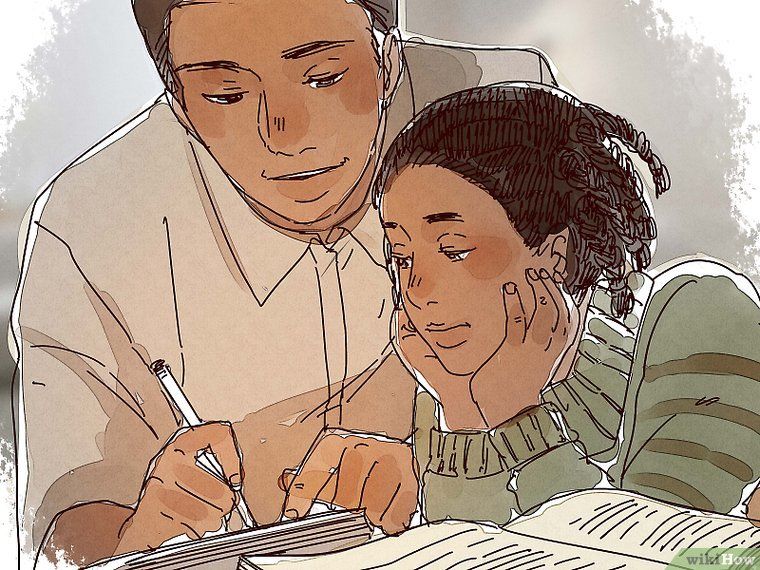

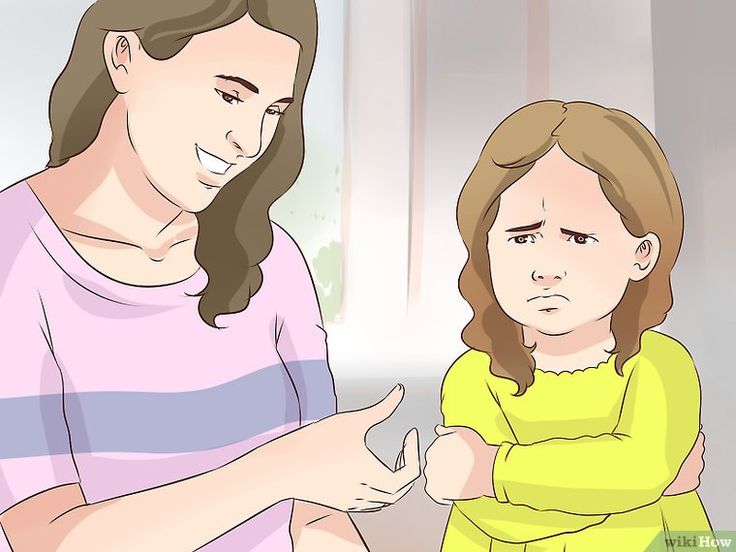 Teach them how to deal with angry feelings in positive ways, like talking about it.
Teach them how to deal with angry feelings in positive ways, like talking about it.